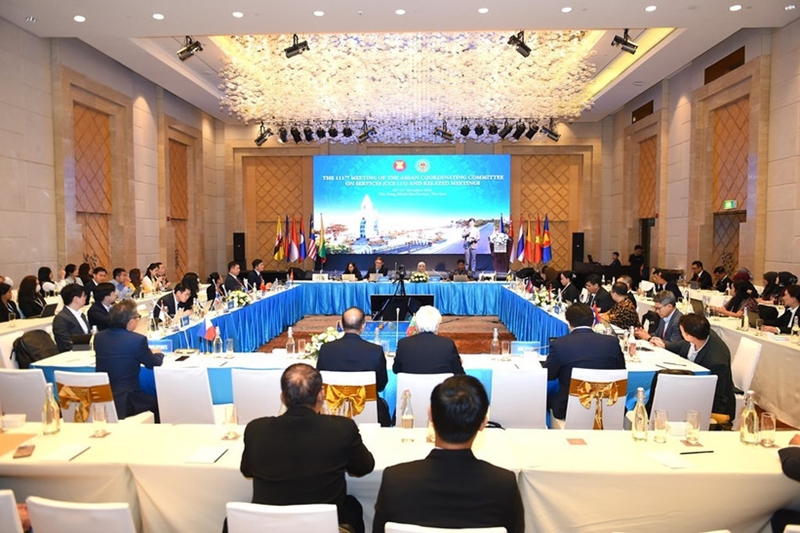The event, co-organized by the Ministry of Finance and the ASEAN Secretariat, brought together around 160 delegates from ASEAN member states and the ASEAN Secretariat.
    |
 |
|
Delegates at the event (Photo: Ministry of Finance) |
Running from November 5-11, the meeting focuses on advancing service liberalization and facilitation in ASEAN by removing barriers, enhancing transparency, reducing policy risks, and simplifying administrative procedures to enable businesses and service providers to operate more efficiently. It aims to make it easier for professionals across member states to work more seamlessly.
Speaking at the plenary session, Dr. Chu Duc Lam, Director of the Department of Sectoral Finance and Economics under the Ministry of Finance, emphasized that in an increasingly complex global context, regional cooperation plays a crucial and strategic role. He stated that service integration is essential to establishing a competitive, dynamic, and deeply connected ASEAN Economic Community (AEC).
Within the AEC framework, services integration remains a key pillar in creating a flexible and interconnected regional market. The CCS has continued to serve as a vital mechanism in coordinating, guiding, and shaping ASEAN’s service cooperation, both internally and with external partners.
Through consensus and collaboration, ASEAN member states and the ASEAN Secretariat have achieved major milestones, including the signing of the ASEAN Trade in Services Agreement (ATISA), the ASEAN Agreement on the Movement of Natural Persons (MNP), and the ASEAN Services Facilitation Framework (ASFF). These achievements have boosted intra-regional trade and investment, strengthened supply chains, created quality jobs, and fostered innovation.
Lam noted that CCS 111 builds upon the progress of previous meetings, reviewing implementation results and refining strategies to ensure effective delivery. He urged all discussions to focus on removing technical barriers, improving policy predictability, and developing data systems and communication tools to translate outcomes into tangible benefits for businesses and people, contributing to inclusive and green growth.
As the focal agency for Vietnam in the CCS, the Ministry of Finance, together with relevant ministries and agencies, will continue to develop suitable financial mechanisms to support ASEAN’s service integration efforts.
Vietnam reaffirmed its commitment to working with ASEAN to advance a digital single-window platform, simplify Mutual Recognition Arrangements (MRAs), and promote the application of circular economy principles in service innovation, viewing these as new drivers of sustainable regional growth.
Source: VNA